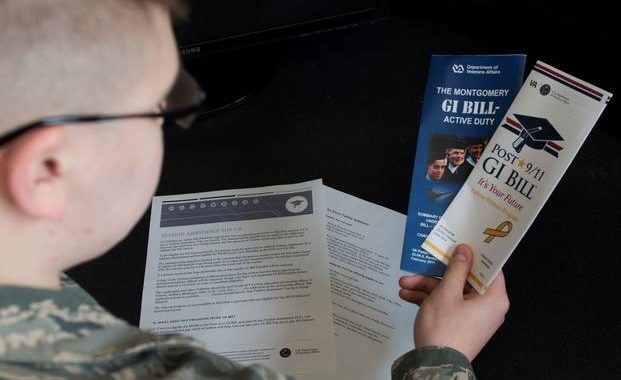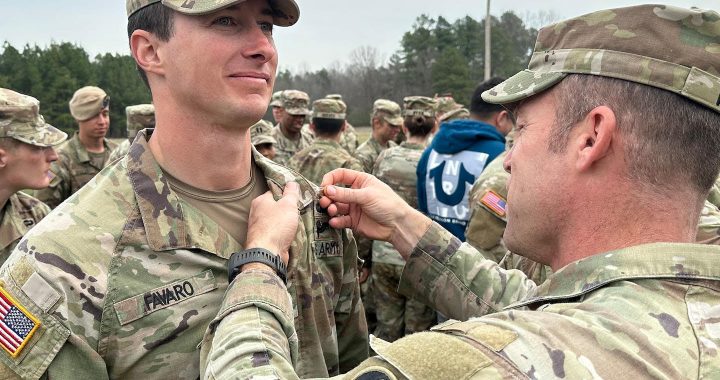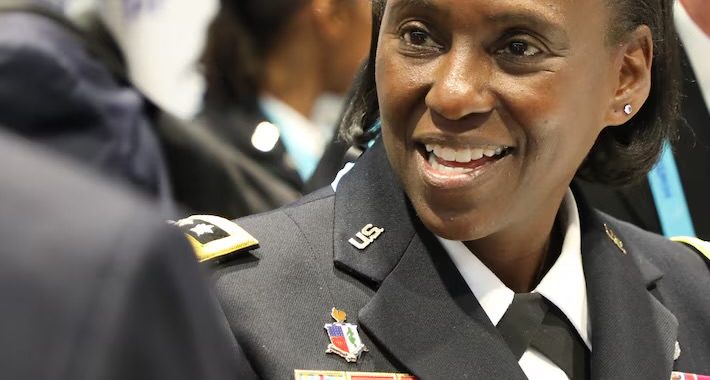4 Keys for a Successful Virtual Military Transition

By Anonymous
Military transitions and job searches have always been difficult. Many veterans have never written a resume, met with a hiring manager, or faced the interview process. Translating years of military experience into civilian terms and gaining industry-specific certifications to begin a new career is challenging, period.
Enter COVID-19, stage left.
“When the coronavirus pandemic started, I know a few of us that were set to transition were worried about getting to events to network, set up informational interviews and the prospect of getting hired. Companies that had jobs available were not hiring. Everything was at a standstill,” said Army veteran Treymayne Criner.
“When the coronavirus pandemic started, I know a few of us that were set to transition were worried about getting to events to network, set up informational interviews and the prospect of getting hired. Companies that had jobs available were not hiring. Everything was at a standstill,”
“There was no set timetable for the interview process. Reopening dates kept sliding closer to my official [separation] date and. … I was nervous of not having an income,” he added.
With most of the world now functioning online, veterans must navigate virtual job interviews, virtual networking, and building industry knowledge remotely. Here are four keys to making your virtual transition an effective one.
1. Organize Your Virtual Transition
The military provides veterans with a structure to succeed. Comparatively, the lack of organization in the civilian world can be eye-opening. The pandemic further limits in-person programs and structure, so veterans must build a solid game plan to create a post-military life.
An established program like Onward To Opportunity (O2O) can help you to determine your new career path, obtain certifications, create a winning resume, utilize your network, and start a new job successfully. O2O is a free career training program that provides professional certification and employee support services to transitioning service members, veterans and military spouses.
O2O combines industry-validated curricula, strong partnerships with leading veteran service organizations and private-sector companies, and comprehensive career coaching services to prepare and match you with your next career.
“Leaving active military service is always a stressful transition, and the onset of COVID-19 along with the ensuing record-shattering unemployment rates has made a difficult transition even more stressful. The ability to use a structured program to translate my military experiences into a known certification … has been invaluable,” said Army veteran Mark Siegel.
“Leaving active military service is always a stressful transition, and the onset of COVID-19 along with the ensuing record-shattering unemployment rates has made a difficult transition even more stressful. The ability to use a structured program to translate my military experiences into a known certification … has been invaluable,”
2. Leverage Remote Training Opportunities
The pandemic has created more opportunities and access to remote training programs. Savvy veterans are taking advantage of free certification programs that make them more attractive to future employers.
Navy veteran Chris Teodoro participated in the O2O career training.
“While COVID-19 definitely imposed some challenges during my transition, I was able to adapt to the changing environments and used the ‘virtual environment’ to balance work, transition and career training. I passed my Project Management Professional (PMP), Six Sigma Yellow Belt, Google IT Support Professional, Scaled Agile Scrum Master and CompTIA A+ O2O coursework,” Teodoro said. “The O2O online learning platform was a valuable resource to study for these certifications. The platform allowed me to access additional coursework, test prep and additional resources to help with my exam preparation.”
3. Network Virtually
We’ve all heard it’s not what you know but who you know, and this is especially true with post-military careers. The fact is that most veterans do not get positions from job boards, but from learning about opportunities from their friends and colleagues. Although in-person veteran job fairs and networking events are no longer taking place, virtual events are becoming more popular. Find one online and sign up to participate.
You can grow your network virtually by connecting to other veterans in your target industry or company on LinkedIn or other social media platforms. Additionally, industry experts can provide great career advice regarding certifications, resume keywords, and tips on the hiring process. They may even be able to advocate for you during the interview process.
4. Learn and Practice Virtual Interviews
Veterans can practice virtual interviews with friends and family. Onward 2 Opportunity offers practice interview sessions and practical feedback.
“The virtual networking and virtual interview preparations they provided were golden!”
“The [team] at O2O encouraged me to stay plugged in,” commented one veteran. “The virtual networking and virtual interview preparations they provided were golden!”
Onward to Opportunity is The Nation’s Leading Career Preparation and Training Program for the Military-Connected Community, and It’s FREE.
If you are an active-duty service member, member of the National Guard or Reserves, veteran, or military spouse, you are eligible to participate. O2O is managed by the Institute for Veterans and Military Families at Syracuse University (IVMF). Our enrollment services team is happy to answer any questions you may have prior to the start of a program. Please Call (315) 443-6898.




